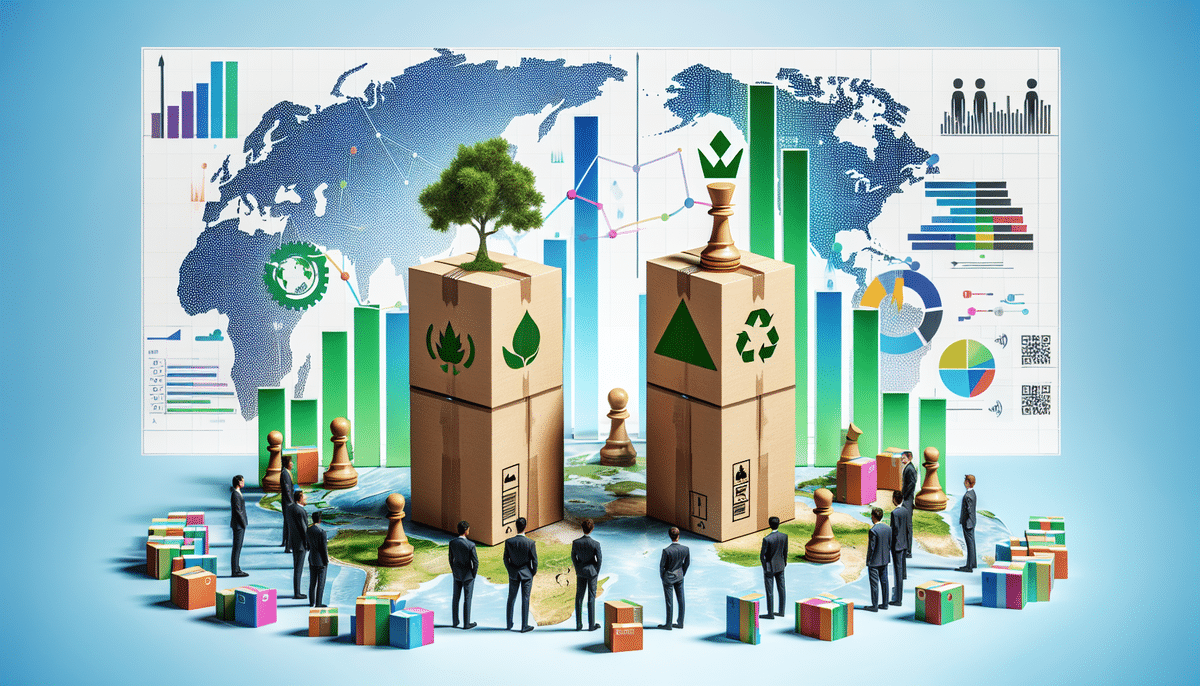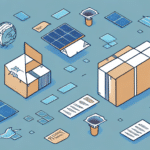The Benefits of Recycled Packaging: How It Can Help the Environment
Packaging plays a vital role in our daily lives. From food to electronics, almost everything we purchase comes in some form of packaging. However, traditional packaging materials like plastic, paper, and cardboard have significant environmental impacts. Fortunately, recycled packaging offers an eco-friendly alternative that can help reduce waste, conserve energy, and lower our carbon footprint. In this article, we will explore the many benefits of recycled packaging and its role in creating a sustainable circular economy.
The Environmental Impact of Traditional Packaging
Traditional packaging materials have a considerable impact on the environment. For example, plastic packaging can take up to 1,000 years to decompose, releasing toxic chemicals into ecosystems during the process. According to the Environmental Protection Agency, paper and cardboard production is responsible for significant deforestation, which destroys habitats and contributes to climate change. Additionally, the manufacturing of these materials requires substantial amounts of energy and water, leading to increased greenhouse gas emissions and water waste.
Fortunately, there are more sustainable alternatives to traditional packaging. Biodegradable packaging made from materials such as cornstarch or sugarcane breaks down naturally, reducing environmental harm. Recyclable packaging options like glass or aluminum can be reused multiple times, decreasing the need for new materials and minimizing environmental degradation. By opting for these alternatives, we can mitigate our environmental impact and strive towards a more sustainable future.
How Recycled Packaging Reduces Landfill Waste
Recycled packaging significantly decreases the volume of waste that ends up in landfills. Materials like cardboard and plastic can be repurposed, reducing the demand for additional raw materials. The EPA reports that recycling these materials not only diverts waste from landfills but also conserves resources, reduces pollution, and saves energy.
Moreover, the production of recycled packaging consumes less energy compared to manufacturing new packaging from raw materials. Recycling processes are generally more energy-efficient, leading to a lower carbon footprint. By incorporating recycled packaging, we contribute to waste reduction and promote a more sustainable approach to resource management.
The Energy Savings of Using Recycled Materials for Packaging
Recycling offers substantial energy-saving benefits. The production of recycled materials typically requires less energy than producing virgin materials. For instance, recycling aluminum cans uses 95% less energy than creating aluminum from raw bauxite. Similarly, recycled plastic consumption saves about 75% of the energy needed to produce new plastic, and paper recycling conserves approximately 40% of the energy compared to producing virgin paper (American Recycling Coalition).
These energy savings contribute to reducing greenhouse gas emissions and conserving natural resources. Additionally, using recycled materials for packaging minimizes waste sent to landfills, further enhancing environmental sustainability.
The Role of Recycling in a Circular Economy
A circular economy emphasizes the reuse and recycling of products to minimize waste and reduce reliance on non-renewable resources. Recycling packaging materials is integral to this model, creating a closed-loop system where materials are continuously repurposed. This approach not only conserves energy and reduces pollution but also fosters economic growth by creating jobs in the recycling industry.
According to the Ellen MacArthur Foundation, transitioning to a circular economy can generate significant environmental and economic benefits. However, recycling alone is insufficient; it must be complemented by strategies like reducing consumption and designing products for longevity and recyclability to achieve true sustainability.
Reducing Carbon Footprint with Recycled Packaging
Utilizing recycled packaging is an effective strategy for businesses to reduce their carbon footprint. The energy savings from recycling processes lead to lower carbon emissions, which are major contributors to climate change. Additionally, recycled packaging reduces dependence on fossil fuels used in the production of virgin materials.
Beyond environmental benefits, adopting recycled packaging enhances a company's reputation. Consumers are increasingly prioritizing sustainability, and businesses that commit to eco-friendly practices can attract and retain environmentally conscious customers. This shift not only supports environmental goals but also strengthens brand loyalty and market competitiveness.
The Economic Benefits of Recycling Packaging Materials
Recycling packaging materials offers significant economic advantages. It reduces costs associated with energy consumption and raw material procurement. Additionally, the recycling industry creates jobs in collection, processing, and manufacturing sectors, contributing to economic growth. According to the Recycling Industry Association, the recycling sector supports hundreds of thousands of jobs and generates billions in revenue annually.
Moreover, selling recycled materials provides new income streams for businesses and communities, while also decreasing waste management expenses and the need for landfill expansion. These economic benefits demonstrate that recycling is not only environmentally responsible but also financially viable.
The Benefits of Recycled Packaging for Businesses and Consumers
Recycled packaging delivers advantages for both businesses and consumers. For businesses, using recycled materials can enhance brand reputation by demonstrating a commitment to sustainability. This can lead to cost savings through reduced waste management expenses and lower material costs. Additionally, companies can differentiate themselves in the market by offering eco-friendly packaging options.
Consumers benefit from recycled packaging by making environmentally conscious purchasing decisions. Recycled packaging reduces their carbon footprint and supports sustainable practices. Furthermore, increasing consumer demand for sustainable products encourages businesses to adopt greener packaging solutions, fostering a mutually beneficial relationship between companies and their customers.
Innovations in Recycled Packaging Technology
Advancements in technology are making recycled packaging more efficient and eco-friendly. Innovations in materials science are enabling the creation of recycled materials that match or exceed the quality of virgin materials. For example, recent studies have demonstrated the potential of enhanced recycling processes to produce high-performance recycled plastics suitable for various applications.
Biodegradable materials represent a significant breakthrough in recycled packaging technology. These materials decompose naturally over time, reducing long-term environmental impact. Companies are also exploring the use of food waste and agricultural byproducts to produce biodegradable packaging, further minimizing waste and promoting resource conservation.
Additionally, packaging design innovations focus on making products easier to disassemble and recycle. This includes using single-material packaging and simplifying component designs to facilitate efficient recycling processes. Some companies are experimenting with reusable packaging systems, where containers are returned to manufacturers for cleaning and reuse, thereby reducing waste and conserving resources.
How to Implement a Successful Recycled Packaging Program
Implementing a successful recycled packaging program requires strategic planning and execution. Businesses can begin by assessing their current packaging materials and identifying opportunities for incorporating recycled content. Engaging with suppliers to source recycled materials and collaborating with recycling facilities ensures a steady supply and effective processing of recyclable materials.
Education and training are crucial for the success of a recycled packaging program. Companies should educate employees about the importance of recycling and provide clear guidelines for proper waste segregation and recycling practices. Additionally, informing customers about recycling initiatives and offering incentives for returning used packaging can enhance participation and support.
Monitoring and evaluating the effectiveness of the recycling program is essential. This involves tracking metrics such as the volume of materials recycled, energy savings achieved, and cost reductions realized. Regular assessments allow businesses to make data-driven adjustments, optimize processes, and maximize the benefits of their recycled packaging initiatives.
By implementing a comprehensive recycled packaging program, businesses can contribute to environmental sustainability, achieve economic benefits, and meet the growing consumer demand for eco-friendly products.
Conclusion
The benefits of recycled packaging are extensive and multifaceted. By reducing waste, conserving energy, and lowering our carbon footprint, recycled packaging plays a pivotal role in fostering a sustainable, circular economy. Advances in recycling technology and increasing environmental awareness position recycled packaging as a key component in the transition towards a more sustainable future.
Successful implementation of recycled packaging programs involves careful planning, education, and continuous improvement. By embracing recycled packaging, businesses can not only enhance their environmental stewardship but also reap economic rewards and meet the evolving preferences of consumers. Collectively, these efforts contribute to a healthier planet and a more sustainable global economy.






















